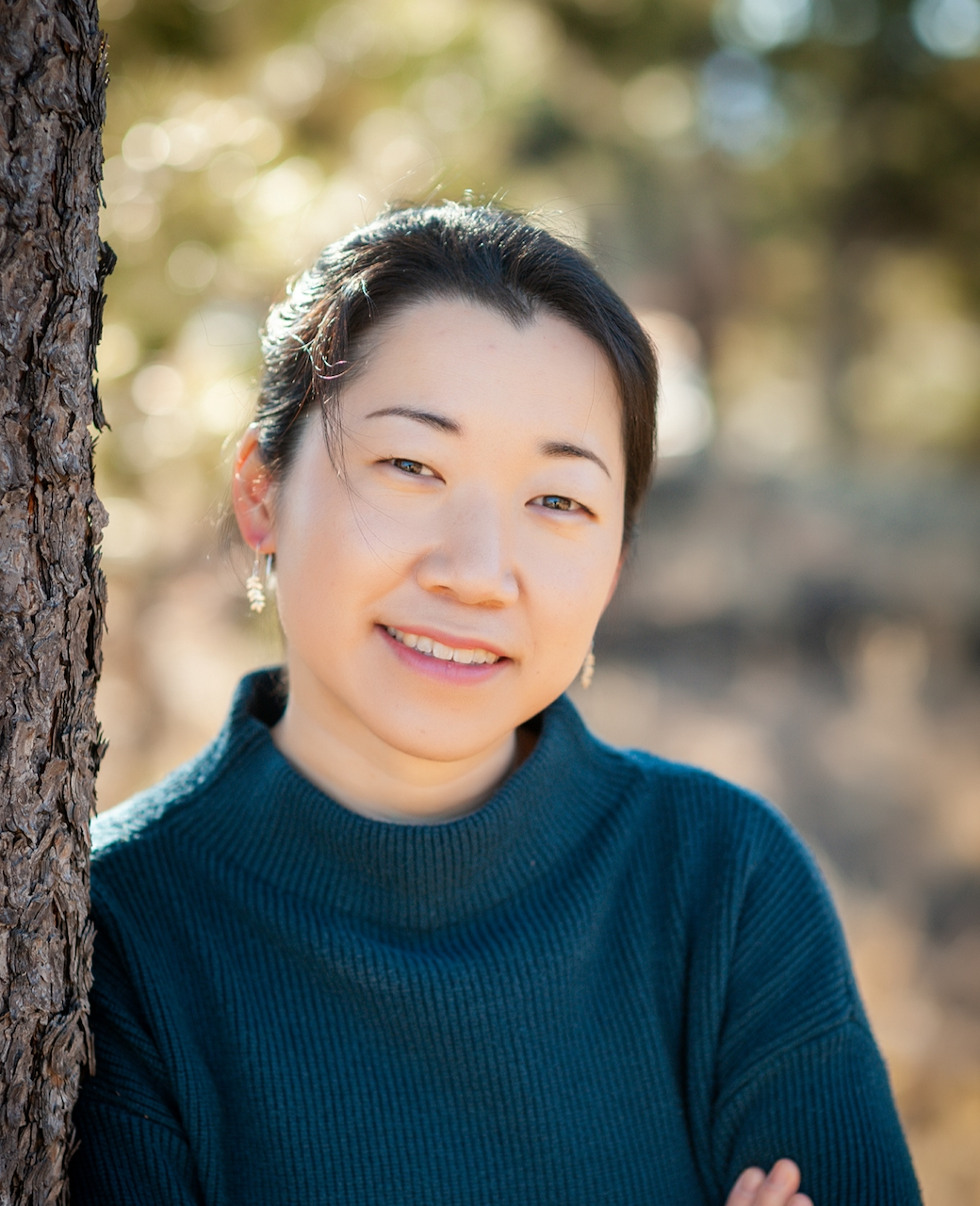Cultivating the Kingdom in Our Midst is a column that invites readers to look for “eye-level” signposts of God at work: shots of beauty that accost us during ordinary hours, scenes of “low art” that unexpectedly make us cry, details right in front of our faces that awaken us to the mercy that bears us up day after day. We’ll explore the underlying truths that are often first signaled by our tender silence or our wondering tears, the better to see the evidence of Christ’s present and approaching reign all around us.
![]()
On a December day in 2019, I looked over and smiled at my excited daughters as they settled into their movie theater seats. Frozen II was beginning its tale on the wide screen. Leaf-laced winds frolicked, stones clunked, a bedtime story of mythological elements unfolded at a quick pace; I glanced at the girls again to see how they were absorbing it all.
But when I turned back to the screen, the next scene hit me between the eyes. Elsa of Arendelle appeared on a castle balcony, catching in the autumn air a melody that it seemed only she could hear.
Finding a parallel between the movie and my own life was the furthest thing from my mind at that moment. To be frank, I can think of few activities I dislike more than extracting lessons or morals from a story, even when the story is an allegory or fable. I’ve long believed that if a story is worth remembering, it will leave a strong impression upon the receiver—but there is a world of difference between shortsightedly hunting for a teachable point and having one’s imagination ignited with the experience of a specific truth. What happened to me that day was the latter.
When Elsa paused at the sound of the song, my mind sparked empathetically with a tension I had known for years.
I became a Christian in sixth grade. Coming from an agnostic, nominally Catholic family, I felt over time as if I were hearing music undetectable to the ears of the people I loved. The further I followed it, the more it drew me onward; the melody built and deepened and bloomed into harmonies and movements that captivated me—but I felt every ounce of my inadequacy to convey it. As hard as I tried, I couldn’t get the people who were closest to me to hear it.
While Elsa walked the halls of her castle on-screen, trying her best to ignore the haunting tune, scenes of sitting in mute helplessness at the kitchen table rose like a mist in my memory. Echoes joined them—the echoes of the desperate prayers of a child who didn’t know how to articulate the grace of the gospel in reply to grown-up economic, relational, and practical objections. Much of my early growth in Christ felt like being pulled in opposite directions. For every step I took toward spiritual discipline, Bible study, or the church, I read and reread His sobering call for direction: “Whoever loves father or mother more than Me is not worthy of Me, and whoever loves son or daughter more than Me is not worthy of Me” (Matt. 10:37, ESV) [1]. But the straightforwardness of this word didn’t lessen the pain of ordering the affections in my life. Only in college did I gather the courage to take a greater leap.
In Frozen II, Elsa’s desire to find the origin of her music eventually leads her through an enchanted forest and a shipwreck. It reaches a climax at night on the edge of the Dark Sea, which she must cross to enter the frozen river Ahtohallan and locate the source of the song. The incoming waves toss her back on her first attempt, but she shakes herself off on the beach and prepares to plunge right back into the frigid water.
By this point, I was leaning forward in my seat.
I was watching two storylines at once, it seemed: my quavering younger self and a Disney character, both girding themselves with resolve in hope of finding answers, drawn by the beauty of a voice “from beyond” that defanged the power of any adversity that might come in between.
I watched as Elsa punctured the first wave and was pummeled into sunless depths by the second. A wild water spirit met her there, dragging her, bucking upon the surface of the sea as she tried to control it—but the priorities of her desires had been settled, and her fear melted in the face of her focus. As the water spirit yielded to Elsa’s reins, I remembered the exhilaration I had tasted as I decided to go “further up and further in” with my God; the old inadequacies became places where I could see His power being made perfect in my weakness (2 Cor. 12:9), where fixing my eyes on Him led to a fortitude of soul that could withstand the wind-rush of journeying deeper into His presence.
In a passage from C. S. Lewis’s The Great Divorce, the narrator witnesses a similar transformation. A Ghost pleads to an angel for deliverance from a tiny red lizard that has been chattering in his ear and doing him endless harm, though the Ghost is convinced that killing the lizard will result in his own death. But once the lizard is crushed by the angel, both lizard and Ghost are changed; the latter into a glorious, solid man; the former into a splendid stallion.
“The new-made man turned and clapped the new horse’s neck. It nosed his bright body. . . They were off before I well knew what was happening,” the narrator says. “There was riding if you like!”[2]
Concentrating on the better reality that is offered to him, the Ghost is able to withstand the death of an influence that holds sway over his soul, and that desire is resurrected into a companion that speeds him, with joy, into the “impossible steeps”[3] of the landscape before them.
Elsa leans forward with the same single-minded bent as the hooves of the water spirit churn smoothly toward Ahtohallan. “I hear you,” she says to the voice, “and I’m coming.”
From this point forward, the connection between my journey and the plot unravels. Elsa enters Ahtohallan and finds that her mother’s voice has been leading her to the discovery that Elsa herself is the answer she has been seeking; I sat in the theater that day and knew with quiet gladness that I was not, contrary to the lyrics of “Show Yourself,” “the one [I’d] been waiting for.”
Perhaps that answer worked within the rather shakily constructed universe of the film, but even there, I glimpsed a hint of the real love that makes souls strong. Like Elsa’s mother’s voice singing out of that frozen river and buried history, the call of God invites us into the presence of God, there to find that He has loved us and given His life for us. This is the stronghold, the central truth, the ice fortress where the secret of our strength lies, and our response to His invitation enables us to harness all that we have to forge our way homeward in joy.
And like a song that comes winging over sea and mountain to reach the ear of its intended hearer, there is no corner of the world too remote for the joy of that refrain to reach us—not even, as I note with a grin from my desk today, an afternoon showing of a Disney film.
![]()
Endnotes
[1] The English Standard Version translation does not capitalize pronouns referring to God; these have been added by Cultivating editors.
[2] & [3] C. S. Lewis, The Great Divorce (New York: Macmillan, 1946), 98-106.
The featured image, “Lake District – View from Nanny Brow,” is courtesy of Lancia E. Smith and is used with her glad permission for Cultivating.
Amy Baik Lee is a contributing writer for Cultivating Magazine and the Rabbit Room, a literary member of the Anselm Society Arts Guild, and the author of This Homeward Ache. A lifelong appreciator of stories, she holds an MA in English literature from the University of Virginia and still “does voices” when she reads aloud. She writes at a desk that looks out on a small cottage garden in Colorado, usually surrounded by her husband’s woodworking projects, her two daughters’ creative works, and patient cups of rooibos tea.


Add a comment
0 Comments